Introduction
Healthcare operations involve patient care, administrative management, and regulation compliance. A medical administrative assistant becomes valuable in handling such a complex setting. He or she ensures smooth facilities so doctors and nurses can focus more on offering the best healthcare services.
This blog discusses the medical administrative assistant job, its skills, and its importance in current healthcare operations.
Comprehending Medical Administrative Assistant
A medical operational assistant handles all non-clinical activities in a healthcare organization. They oversee all the administrative aspects to keep daily operations running without hitches.
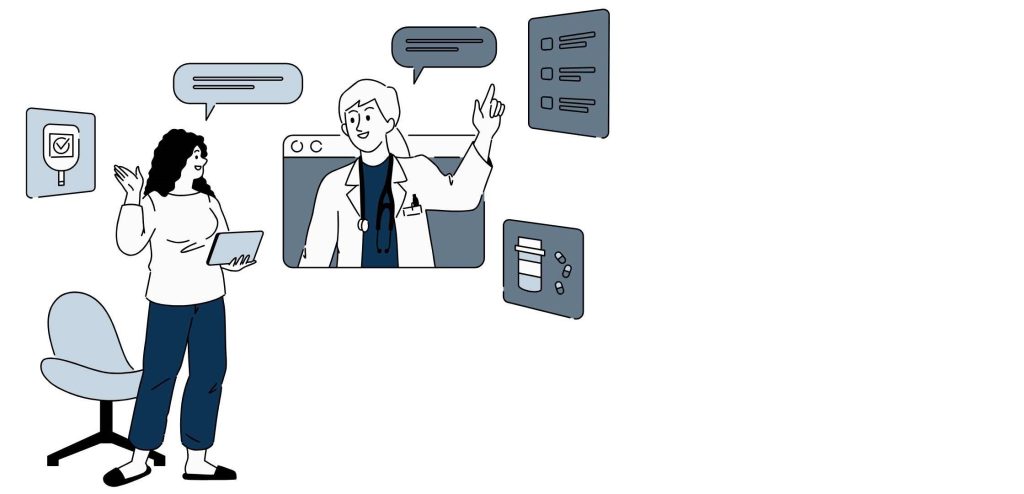
Major Duties:
- Setting patient appointments and handling calendars.
- Dealing with patient records, and EMR systems.
- Preparation of insurance claims and billings.
- Maintenance of communication between patients, vendors, and employees.
- Coordinating office functions and products.
Skills of Medical Administrative Assistants
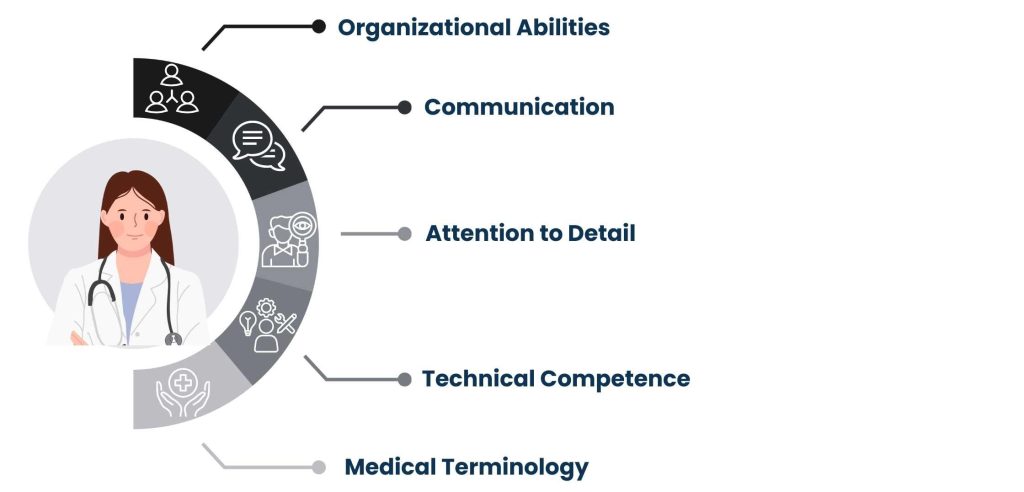
- Organizational Abilities: Proficient in handling multiple tasks, schedules, and records simultaneously.
- Communication: Able to have clear, professional words with patients, medical staff, and insurance companies.
- Attention to Detail: Skilled in handling medical records, billing, and regulatory documentation with accuracy.
- Technical Competence: Knowledge of medical software, scheduling tools, and billing systems.
- Medical Terminology: Understand health-related terms for effective communication and record-keeping.
Also Read: Amazon Vendor Central Consultants
Major Accountabilities of Medical Administrative Assistant

- Appointments of patients: Schedule appointments for patients, coordinating the physicians’ time effectively.
- Patient’s Chart/EMRs: Ensure proper management and update the patient’s chart.
- Insurance Management and Billing: Patients’ verification of medical claims besides billing concerns.
- Front Desk Functions: The patients’ welcome and coordination. Accommodating them and clarifying their query.
- Office Coordination: Oversee supplies, manage vendor communication, and prepare the office for operation.
- Communication: Send appointment reminders and follow up with patients after treatment.
Why Medical Administrative Assistants are Important?
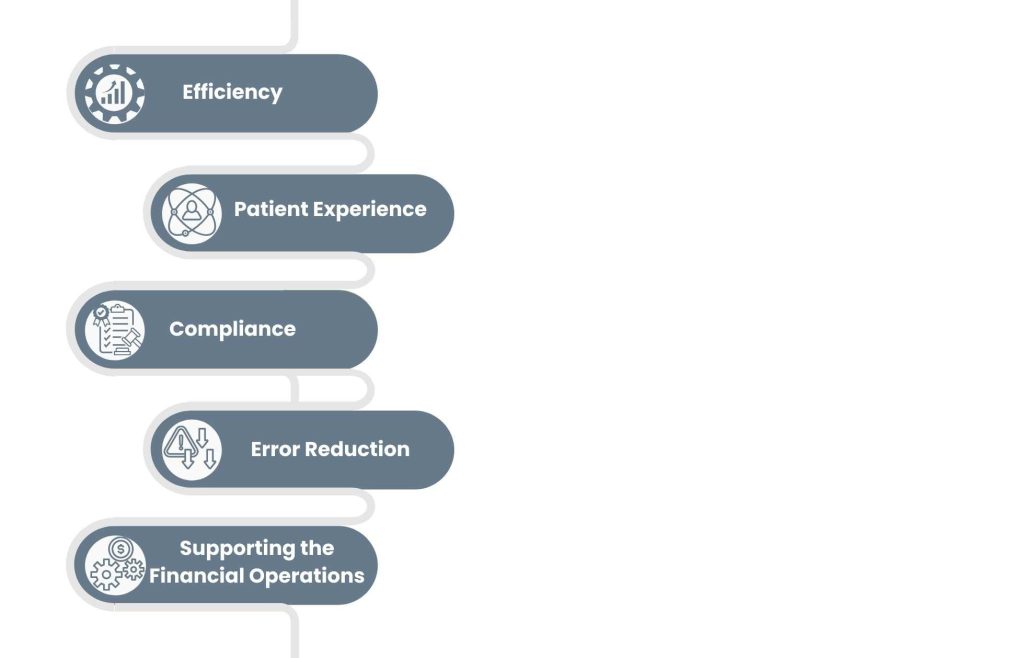
- Efficiency: Streamline workflow so medical staff can concentrate on patient care.
- Patient Experience: Friendly and professional support ensures patient satisfaction.
- Compliance: Keep clear records and remain compliant with HIPAA.
- Error Reduction: Minimize flaws in scheduling, billing, and record keeping.
- Supporting the Financial Operations: Process claims and billing efficiently to improve cash flow.
Tools the Medical Administrative Assistants Use
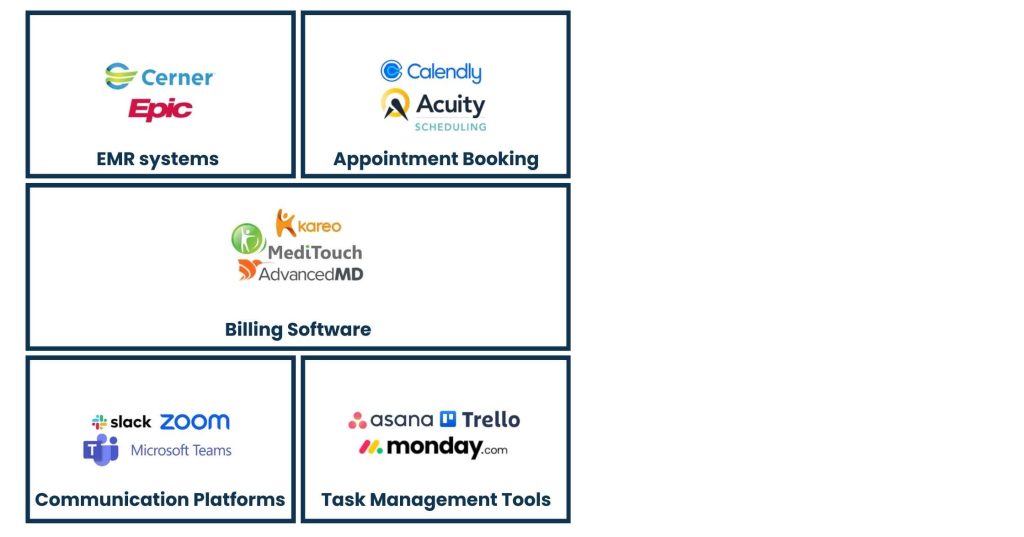
- EMR systems: Epic, Cerner.
- Appointment Booking: Calendly, Acuity Scheduling.
- Billing Software: Kareo, AdvancedMD, MediTouch.
- Communication Platforms: Slack, Microsoft Teams, Zoom.
- Task Management Tools: Trello, Asana, Monday.com.
Career Opportunities for Medical Administrative Assistants
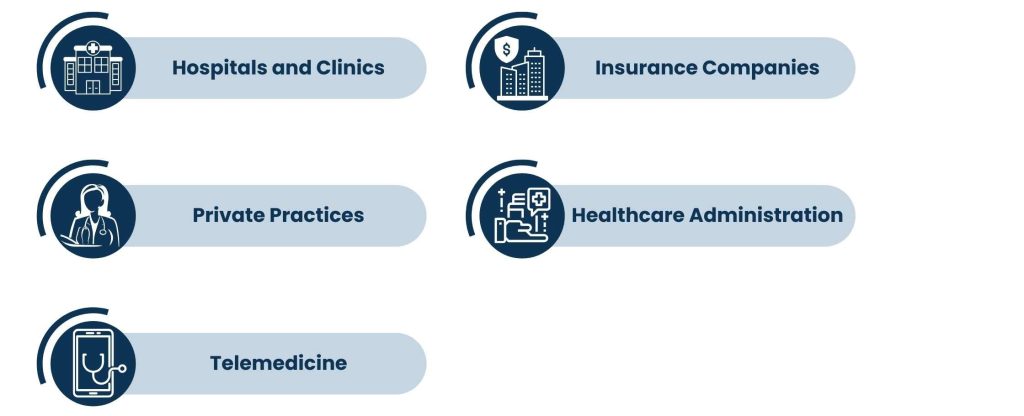
- Hospitals and Clinics: Work in general medical institutes or specialty centers managing administrative tasks.
- Private Practices: Support individual or group practices with scheduling, billing, and patient records.
- Telemedicine: Coordinate virtual appointments, manage digital records, and handle remote communication.
- Insurance Companies: Process claims and facilitate communication between providers and policyholders.
- Healthcare Administration: Move into office manager or healthcare administrator positions with experience.
Also Read: Account Management Tools
Become a Successful Medical Administrative Assistant
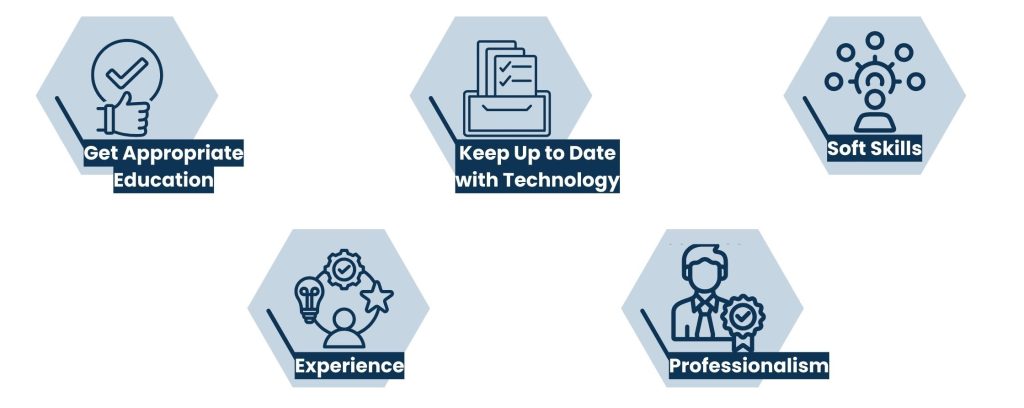
- Get Appropriate Education: Earn certifications or courses in healthcare administration or medical terminology.
- Keep Up to Date with Technology: Learn about new medical software and tools.
- Soft Skills: Enhance skills for communication, empathy, and solving problems.
- Experience: Internship or volunteer at any healthcare-related location to work under real scenarios.
- Professionalism: Be confidential with patient information while adhering to ethical guidelines.
The Future of Medical Administrative Assistants

Telemedicine, telehealth, and the increasing demand for skilled administrative assistants have placed an important ask on them. Keeping abreast with new technologies, ensuring compliance is maintained within services, and offering solutions for efficient service delivery are a few things that make them indispensable in the increasing healthcare service industry.
Conclusion
A medical administrative assistant is vital for all healthcare facilities. Handling critical administration tasks allows medical professionals to provide quality patient care.
A proficient medical administrative assistant can differentiate in operational efficiency, patient satisfaction, and compliance whether you’re managing a small clinic or a large hospital. If you’re considering this career or looking to hire, understanding their role and importance is the first step toward building a successful healthcare practice.
About Us
Tasks Expert offers top-tier virtual assistant services from highly skilled professionals based in India. Our VAs handle a wide range of tasks, from part time personal assistant to specialized services like remote it support services, professional bookkeeping service etc. Furthermore, it helps businesses worldwide streamline operations and boost productivity.
Ready to elevate your business? Book a Call and let Tasks Expert take care of the rest.









